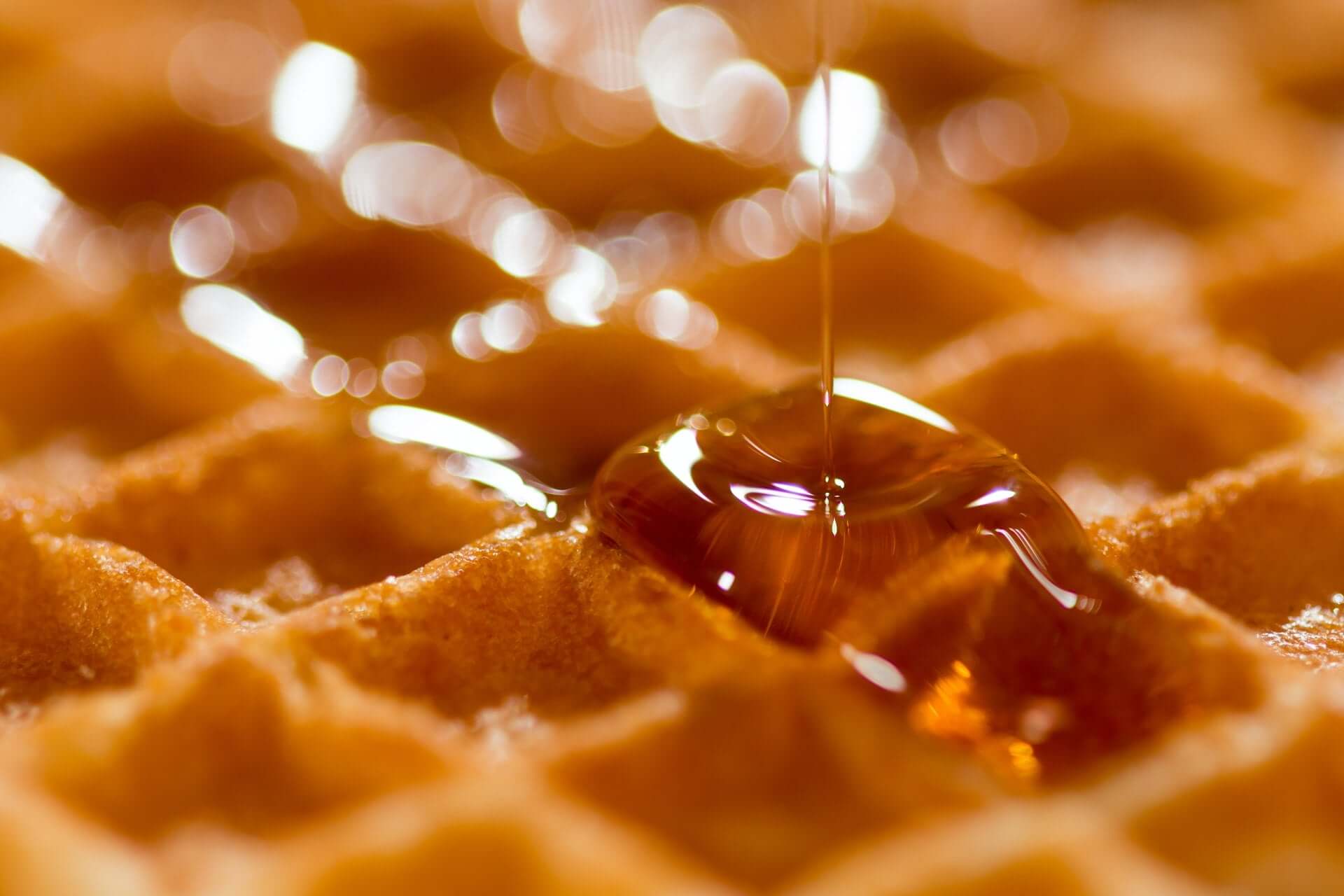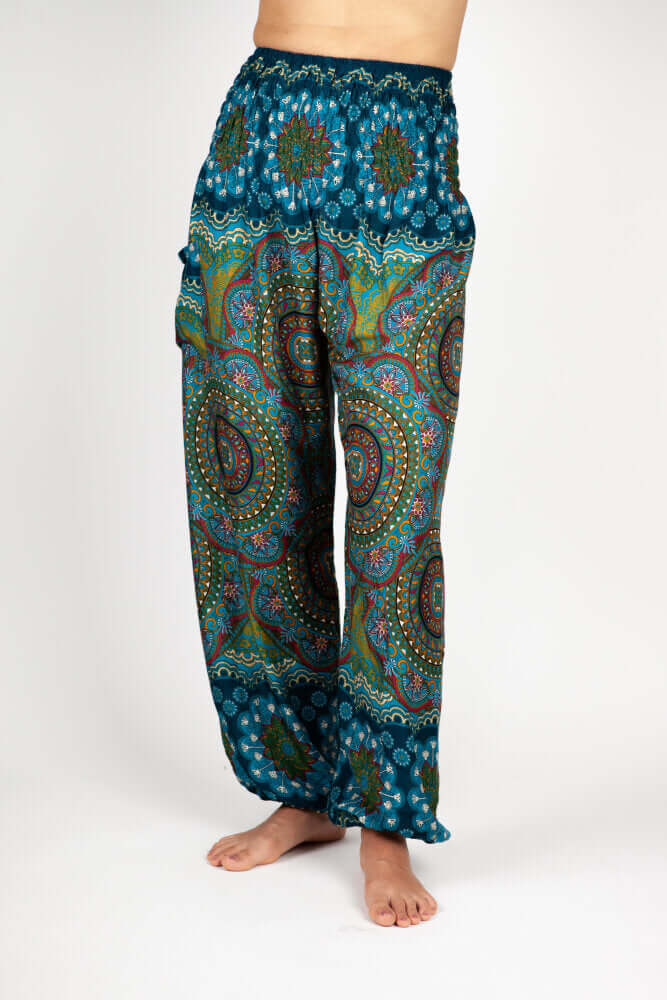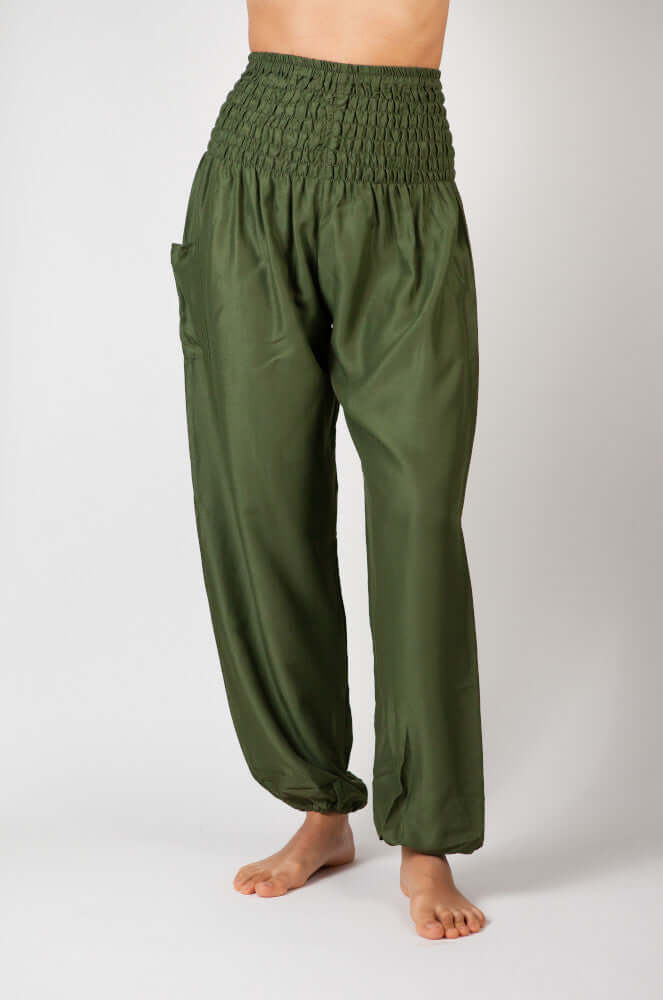
Inhaltsverzeichnis
5 delicious honey alternatives
Honey is probably the most popular sweetener next to refined sugar. Vegans, but usually avoids honey and turn to alternatives. But even non-vegans are worth trying the various honey alternatives. They're in no way inferior to honey and just as delicious!
Why do some people choose to avoid honey?
The short version: Honey is produced from flower nectar, which is absorbed by the bees and then enriched and processed in the hive. Honey serves as the bees' primary food source and is essential for the colony's survival during the cold winter months. Human intervention in this natural process not only disturbs the bees but also "robs" them of their product. They are often harmed in the process. I will address all of the points just mentioned. in this blog post in more detail.

We use honey to sweeten food, drinks, and baked goods. Ultimately, honey is one thing for humans: sugar—sugar that tastes pretty good and can have very different nuances. The good thing, however, is that sugar comes in a wide variety of forms, so we're not dependent on eating honey. After all, we can easily replace the sweetener with another. The alternatives are also very delicious and by no means all taste the same. Today, I'm introducing you to the 5 best honey alternatives. :)
5 delicious honey alternatives
1. Agave syrup
Let's start with what is probably the most well-known honey alternative among vegans.
Agaves are plants that thrive in dry, hot climates. For this reason, the plant is primarily cultivated in South America. Agave syrup is produced from the sap of the plant.
Agave syrup has almost no flavor of its own, making it extremely versatile. Agave syrup is often used as a honey alternative, especially in baking, because the two are almost identical in consistency and sweetness.
Because agave syrup contains a lot of fructose, it is unfortunately less suitable for allergy sufferers.
Agave syrup is now available in virtually every supermarket, discount store, and, of course, health food store. Health food stores also carry an agave cream that's great as a spread and is very similar to matte, opaque honey.

2. Maple syrup
Who hasn't tried it – pancakes with maple syrup for Sunday breakfast? Delicious! Similar to agave syrup, maple syrup is quite versatile and a great alternative to honey. However, you have to be aware of its rather strong flavor. Of course, the final taste depends on how you use it. You definitely have to try maple syrup!
Maple syrup comes from Canada and the vast majority of production still takes place there today.Similar to agave syrup, this means that long transport routes are required for the product to reach our supermarkets. Keep that in mind.
The syrup It is extracted from the trunks of the sugar maple tree and then heated to extract the sap. It also has a high fructose content—a warning for all allergy sufferers.
Compared to bee honey Maple syrup has more nutrients and fewer calories. It can be found in supermarkets, discount stores, and health food stores.

3. Date syrup
Now let's get to a little insider tip: date syrup, which is not yet so widespread in this country.
Dates are very healthy because they have antioxidant properties, promote digestion, and stimulate energy metabolism. Date syrup also offers all of these benefits—if it's made naturally. So, keep an eye out for this when buying.
Date syrup contains far fewer calories than regular cane sugar. Unfortunately, people with fructose intolerance should be careful here as well (there's a suitable honey alternative coming soon for you, too, so stay tuned! 😉).
Date syrup is one of my favorite honey substitutes and tastes great in tea, pastries, bread, and muesli, among other things.
Quick tip: Date syrup is pretty easy to make at home! The result is more like a mousse than a syrup, but that doesn't detract from its quality.
All you need is 150g of dates (unsweetened, dried, and pitted) and 250ml of still tap water. Boil the water and then add it to a heatproof bowl along with the dates. Let the dates soak in the water for an hour, then transfer the mixture to a blender. Blend until smooth. Your date "syrup" will keep in the refrigerator for up to a week.
If you don't want to make date syrup yourself, you can get it in organic and health food stores.

Photo by engin akyurt on Unsplash
4. Sugar beet syrup
Sugar beet syrup is a great honey alternative because it's locally available. It's made by thickening sugar beet juice and requires no additives. It's mostly grown in Germany or other Central European countries.
Because "regular" sugar is also made from sugar beets, it has similar nutritional values to conventional sugar. Unlike table sugar, however, it contains valuable minerals, for example. Sugar beet syrup also scores by its taste.
Sugar beet syrup, also known as beetroot syrup, is particularly good as a spread. It can also be used in baking and cooking (I'm just saying "vegan gravy"...!).
Sugar beet syrup is available in supermarkets, discount stores and organic food stores.

5.Rice syrup
Here he comes, the Tip for allergy sufferers: Rice syrup! It consists only of rice and water and is therefore fructose- and gluten-free.
Rice syrup has a fairly mild flavor and is less sweet than honey or regular sugar. Therefore, if you want to replace sugar or honey in recipes with rice syrup, you should increase the specified amount by 10%.
At this point, it won't surprise you that rice syrup is great for sweetening pancakes, cereal, coffee, and baking. After all, it's still a honey alternative. :-)
Rice syrup is not yet as widespread as other honey alternatives and is therefore primarily available in health food stores and organic shops.
The products mentioned are by no means the only honey alternatives. Honey can also be easily substituted with stevia, dandelion syrup, apple syrup, or dried fruit. The latter three products are easy to make at home, similar to the date syrup.
There are certainly other honey alternatives that I haven't heard of yet. It's definitely worth browsing the supermarket shelves and trying out different honey alternatives. I'm sure there's something for everyone! With that in mind, have fun sweetening with plant-based sweeteners. ☺️💛.
If you would like to learn more about healthy eating, mindfulness, sustainability or family and pregnancy, Check out more exciting blog articles on these topics here.




























Leave a comment
This site is protected by hCaptcha and the hCaptcha Privacy Policy and Terms of Service apply.